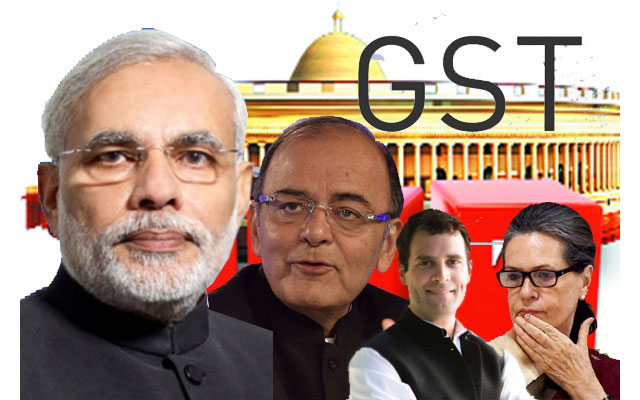
GST Council approves CGST Bill and IGST Bill
This clears the deck for the Central Government to take these two Bills to the Parliament for their passage in the ongoing Budget Session.
Some of the main features of the two Bills, as finalized by the GST Council, are as follows:
i. A State-wise single registration for a taxpayer forfiling returns, paying taxes,and to fulfil other compliance requirements. Most of the compliance requirements would be fulfilled online, thus leaving very little room for physical interface between the taxpayer and the tax official.
ii. A taxpayer has to file one single return state-wise to report all his supplies, whether made within or outside the State or exported out of the country and pay the applicable taxes on them. Such taxescan be Central Goods and Services Tax (CGST), State Goods and Services Tax (SGST), Union Territory Goods and Services Tax (UTGST) and Integrated Goods and Services Tax (IGST).
iii. A business entity with an annual turnover of upto Rs. 20 lakhs would not be required to take registration in the GST regime, unless he voluntarily chooses to do so to be a part of the input tax credit (ITC) chain. The annual turnover threshold in the Special Category States (as enumerated in Article 279A of the Constitution such as Arunachal Pradesh, Sikkim, Uttarakhand, Himachal Pradesh, Assam and the other States of the North-East) for not taking registration is Rs. 10 lakhs.
iv. A business entity with turnover upto Rs. 50 lakhs can avail the benefit of a composition scheme under which it has to pay a much lower rate of tax and has to fulfil very minimal compliance requirements. The Composition Scheme is available for all traders, select manufacturing sectors and for restaurants in the services sector.
v. In order to prevent cascading of taxes, ITC would be admissible on all goods and services used in the course or furtherance of business, except on a few items listed in the Law.
vi. In order to ensure that ITC can be used seamlessly for payment of taxes under the Central and the State Law, it has been provided that the ITC entitlement arising out of taxes paid under the Central Law can be cross-utilised for payment of taxes under the laws of the States or Union Territories. For example, a taxpayer can use the ITC accruing to him due to payment of IGST to discharge his tax liability of CGST / SGST / UTGST. Conversely, a taxpayer can use the ITC accruing to him on account of payment of CGST / SGST / UTGST, for payment of IGST. Such payments are to be made in a pre-defined order.
vii. In the Services sector, the existing mechanism of Input Service Distributor (ISD) under the Service Tax law has been retained to allow the flow of ITC in respect of input serviceswithin a legal entity.
viii. To prevent lock-in of capital of exporters, a provision has been made to refund, within seven days of filing the application for refund by an exporter, ninety percent of the claimed amount on a provisional basis.
ix. In order to ensure a single administrative interface for taxpayers, a provision has been made to authorise officers of the tax administrations of the Centre and the States to exercise the powers conferred under all Acts.
x. An agriculturist, to the extent of supply of produce out of cultivation of land, would not be liable to take registration in the GST regime.
xi. To provide certainty in tax matters, a provision has been made for an Advance Ruling Authority.
xii. Exhaustive provisions for Appellate mechansim have been made.
xiii. Detailed transitional provisions have been provided to ensure migration of existing taxpayers and seamless transfer of unutilised ITC in the GST regime.
xiv. An anti-profiteering provision has been incorporated to ensure that the reduction of tax incidence is passed on to the consumers.
xv. In order to mitigate any financial hardship being suffered by a taxpayer, Commissioner has been empowered to allow payment of taxes in instalments.
The remaining two Bills namely, State Goods and Services Tax (SGST) Bill and the Union territory Goods and Services Tax (UTGST) Bill, which would be almost a replica of the CGST Act, would be taken-up for approval after their legal vetting in the next meeting of GST Council scheduled on 16 March 2017.
Support Our Journalism
We cannot do without you.. your contribution supports unbiased journalism
IBNS is not driven by any ism- not wokeism, not racism, not skewed secularism, not hyper right-wing or left liberal ideals, nor by any hardline religious beliefs or hyper nationalism. We want to serve you good old objective news, as they are. We do not judge or preach. We let people decide for themselves. We only try to present factual and well-sourced news.







